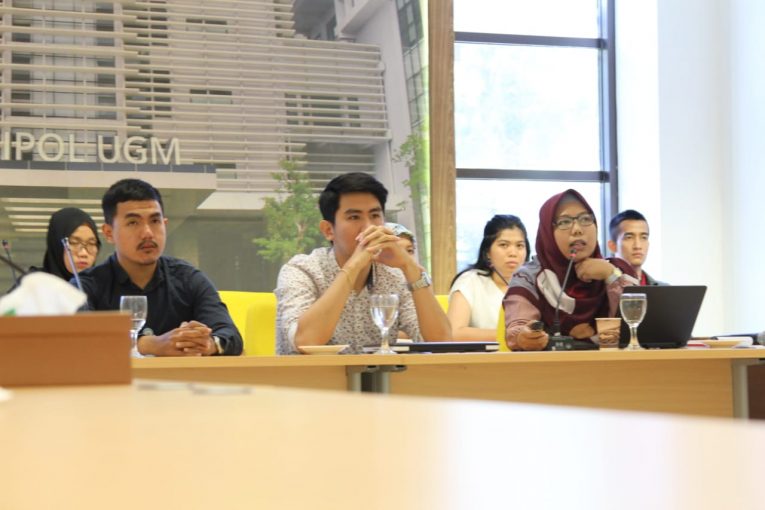
Yogyakarta, 11 October 2019—The Institute of International Studies (IIS) of UGM held the 5th edition of Beyond the Great Wall, entitled “China’s Expanding Trade Relations: Opportunities and Challenges.” This discussion was held in the faculty meeting room.
Umi Qodarisasi, lecturer from the Political Thoughts Study Programme of the State Islamic Institute of Kudus (IAIN Kudus), filled the first half of the discussion. She presented the topic of “The Rise of China in Africa.” The economy of African states is rapidly growing. This growth is propelled by advancements in information and communications technology, globalization, urbanization and the sheer number of the African population that is currently on the working age.
This cooperation was formalized under the Forum on China-Africa Cooperation (FOCAC), which acts as a platform for cooperation between China and African states. “FOCAC brings a significant change when it comes to the relations between China and Sub-Saharan African states. China is Africa’s main development partner,” Umi stated. The states that are passed by the Belt and Road Initiative (BRI) will receive a larger amount of investment, particularly in terms of infrastructure. China’s main sectors of investment are transportation and energy,” Umi added.
Afterwards, William Help, the President of The Student Association of Belt and Road Initiative (SABRI) of UGM, continued the discussion. He focused on the recent issue of the ongoing tensions in Hong Kong. Tensions between China and Hong Kong have occurred since 2011, and the recent one was caused due to the plans to enact the extradition bill. However, this tension spread to other demands, such as demanding accountability of the police brutality, increasing freedom and democracy, as well as freeing the detained protesters.
William conveyed that there are 5 priorities of the BRI project in Hong Kong: people to people bond, financial integration, unimpeded trade, policy coordination and the connectiveness of the facilities. The BRI project will not only focus on the trade of raw materials, but also on the manufacturing sectors. The BRI project that involves Hong Kong focuses on trade and economic ties, innovation and technology, financial services, as well as international shipping, logistics and transport.
“As long as Beijing still controls Hong Kong and maintains the status quo, BRI’s ambitions in Hong Kong will face many obstacles, except in the technical aspects. However, the BRI project can definitely benefit Hong Kong itself,” William added as a closing statement.
